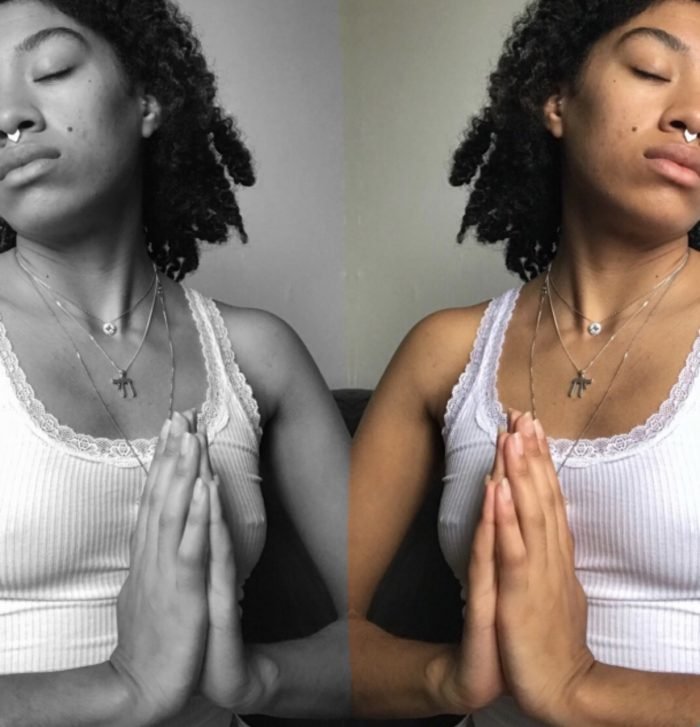Nothing is personal and everything is.
It has happened to us all. It could be something as small as a stranger bumping into you, demanding you to watch where you’re going.
Or you could be in your car when someone in a rush decides to overtake you and shouts, telling you what an idiot you are because you didn’t move out their way fast enough. Or maybe someone catches you looking at them and defensively asks what you’re looking at.
I could give endless examples of possible everyday interactions and how affected we can be by the actions of others. Sometimes the effects linger, and multiple times in our lives, we’ve probably allowed these situations to affect our whole day, week, and month.
But why?
Why blame them for our reactions, or blame ourselves for how this person is responding to us?
Well, nothing is personal, and everything is. Let me explain what I mean.
In my late teens, I would lose my attitude frequently. It would be like flicking a switch on without knowing why it switched on or how to turn it off. I decided to go into direct sales, which was door to door at the time. Now, many people have different opinions on people who sell at the door, and most who try this kind of job quit within the first week or two. I stayed for a year. It was unlike any job I had ever experienced; it changed my perspective and my life.
I saw it as an opportunity to learn more about myself and test my ability to converse with others. The company I had worked for said that attitude was everything, and I would learn how it would affect my results.
Throughout the year, I greeted every person I met with a genuine smile. But I still often experienced people shouting and cursing at me, slamming their doors in my face. My attitude would fly out the window. I would often wander off and sit somewhere to sulk on my own. It would take me a while to come out of that mood.
Over time, as my emotions began to recenter, I gained clarity and asked myself why I was giving my power away and allowing their reactions to determine my day? I began to understand that it was because their actions or words were provoking deep memories of rejection. Rejection was one of my triggers.
This came from not feeling good enough and would cause me to react defensively or cry as I felt I had been attacked and needed to protect myself somehow. I’d internalize their responses as something directly personal toward me. I finally recognized that, actually, how they’d chosen to react is a reflection of themselves, not me. How could I possibly take them personally when I have no idea what was going on in their lives? It was simply my perception.
After that, my attitude was restored, and I continued. I told myself that as long as I stayed positive, I would attract and find those positive people I was looking for. And when I eventually found them, it was like finding a ray of sunshine. I wouldn’t have found them if I had stayed in that previous state of mind.
Now, If we speak in terms of friendships and relationships, the same applies; however, I will never say that we should accept certain behaviors. If someone is abusive, regardless of their reason for being so, there is no excuse. But if we accept the abuse, then that is about how we feel about ourselves, and it is our responsibility to make a choice and remove ourselves from that situation. Why are we accepting it?
Of course, situations differ, and speaking from experience and being in an abusive relationship myself, I know how hard it can be. I empathize with anyone who has experienced any form of abuse, whether it be emotional, physical, or mental, within a romantic relationship or family situation. But there is only so much blaming we can do. Happiness is an inside job, and it is our responsibility to choose people who are good for us.
Within a disagreement involving a friend, your first instinct may be to blame the other person or react defensively, especially if you feel under attack. Take a moment and pause, look within and ask yourself if you had any part to play, holding yourself accountable for your actions while understanding the other person’s point of view and communicating your own clearly and respectfully. You choose how you want to respond.
I understand how vulnerable it makes us feel to admit when we may be wrong, but there are strengths and growth in doing so. If you see the other person is continuing to be disrespectful to you or invalidating your point of view, then you know you did your best and how they’re behaving is a reflection of them, not you.
Look in a mirror and smile; your reflection smiles back. You frown, it frowns; you cry, it cries, and so on. People are our perfect mirrors, and how they choose to react to us isn’t personal. It has everything to do with the reality they’re projecting and how they’re feeling within themselves.
How you choose to respond has got nothing to do with them and everything to do with you. And how you’re feeling within yourself. Your state of being is your responsibility alone; no one else is in control of it. As I mentioned before, it is simply your perception.
A stranger, an acquaintance, a friend, a lover, or a family member may trigger something within us, yet many of them are in pain and projecting that pain. Often we’re so concerned with “how they’re making us feel” that we don’t even acknowledge anything else.
I no longer blame others for my reactions. Instead, I pause and ask myself what the emotion that I’m feeling is here to show me. What fear is being activated, and how can I be kinder to myself and others?
Remember: how we choose to respond to someone else’s pain says a lot about our own.







Read 15 comments and reply